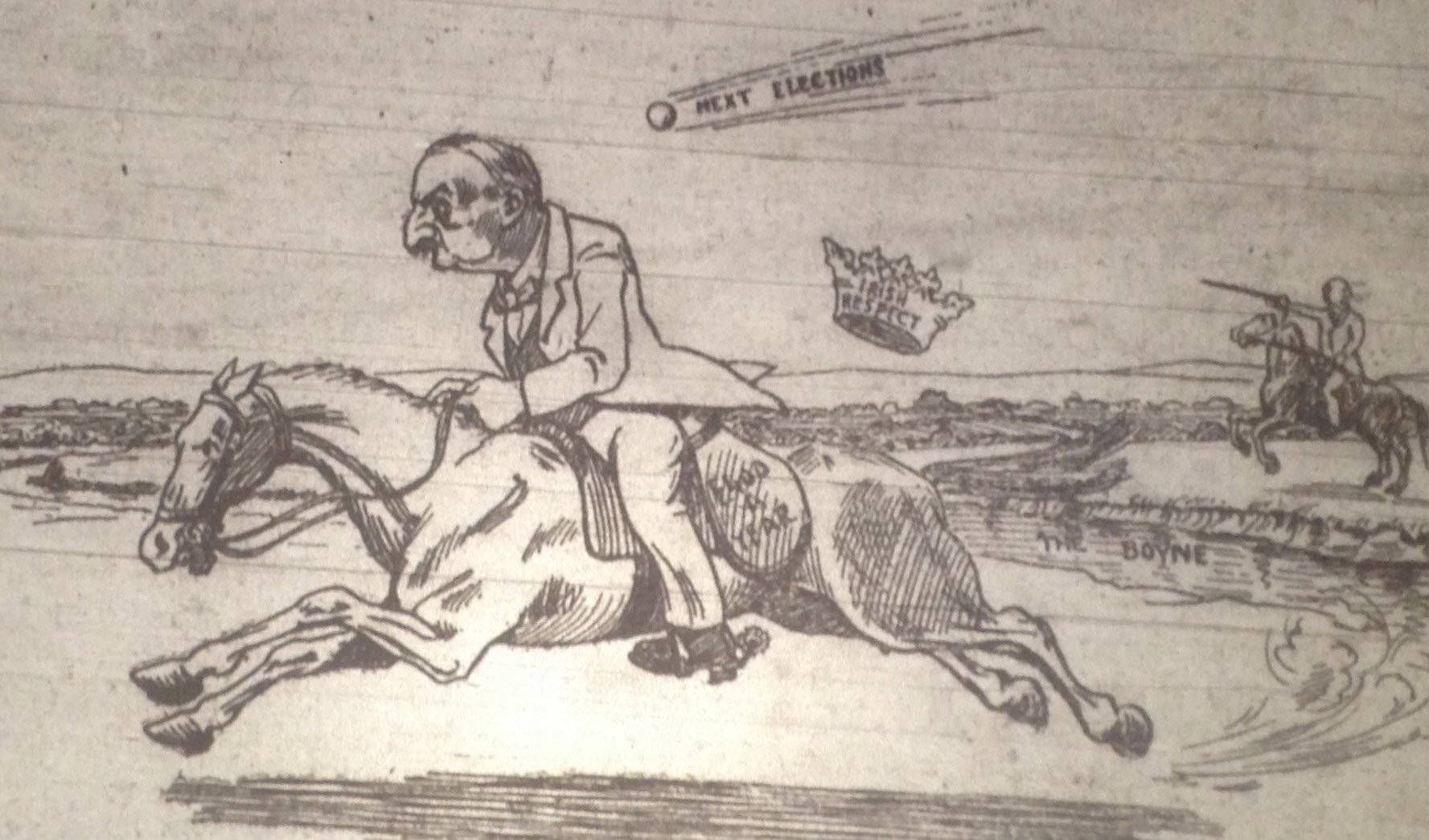Irish Nation League gathers momentum
Dublin, 23 August 1916 - The newly formed Irish Nation League will hold a convention in Dublin at which representatives from all over Ireland will be present.
Branches of the League are currently being established around the country in response to recent negotiations chaired by the British minister, David Lloyd George. Those negotiations, which also included Ulster Unionists and leaders of the nationalist Irish Parliamentary Party, resulted in a White Paper proposing the partition of Ireland.
The league will operate 'free from the control of the Irish Parliamentary Party'. Its primary goal, according to its literature, is to 'maintain the unity of Ireland; to secure complete national self-government and prevent any division or partition of the nation'. It also aims to preserve the country's cultural heritage, to develop natural resources and to 'obtain justice for Ireland in the matter of imperial taxation'.

|

|
Left: Handbill bill issued by the Irish Nation League. Click to enlarge. Right: A page from an Inspector General's report in July 1916. It mentions the Irish Nation League: 'It professes to be independent of the Irish Parliamentary Party - in fact it would seem to be a revolt of some Constitutional Nationalists against Mr. Redmond and his colleagues.' Click to enlarge. For full document, see Related Content. (Images: Dublin Diocesan Archive & National Archives, UK)
The idea of partition has provoked a storm of criticism against Irish Parliamentary Party leader John Redmond and motions have been passed at meetings around Ireland condemning the negotiations. The proposed partition was derided at a meeting in Strabane, Co. Tyrone, as a ‘corrupt bargain' that was the product of the ‘connivance of a servile and treacherous Irish Party’.
At the same meeting, a local councilor, P. Lennon, said: ‘If Mr. Redmond cannot carry the flag to victory let him get out of the road.’
The Nation League is just one of a number of organisations, including the Repeal League, which have sprung up as a response to the direction of Irish politics since the Rising.
[Editor's note: This is an article from Century Ireland, a fortnightly online newspaper, written from the perspective of a journalist 100 years ago, based on news reports of the time.]





















